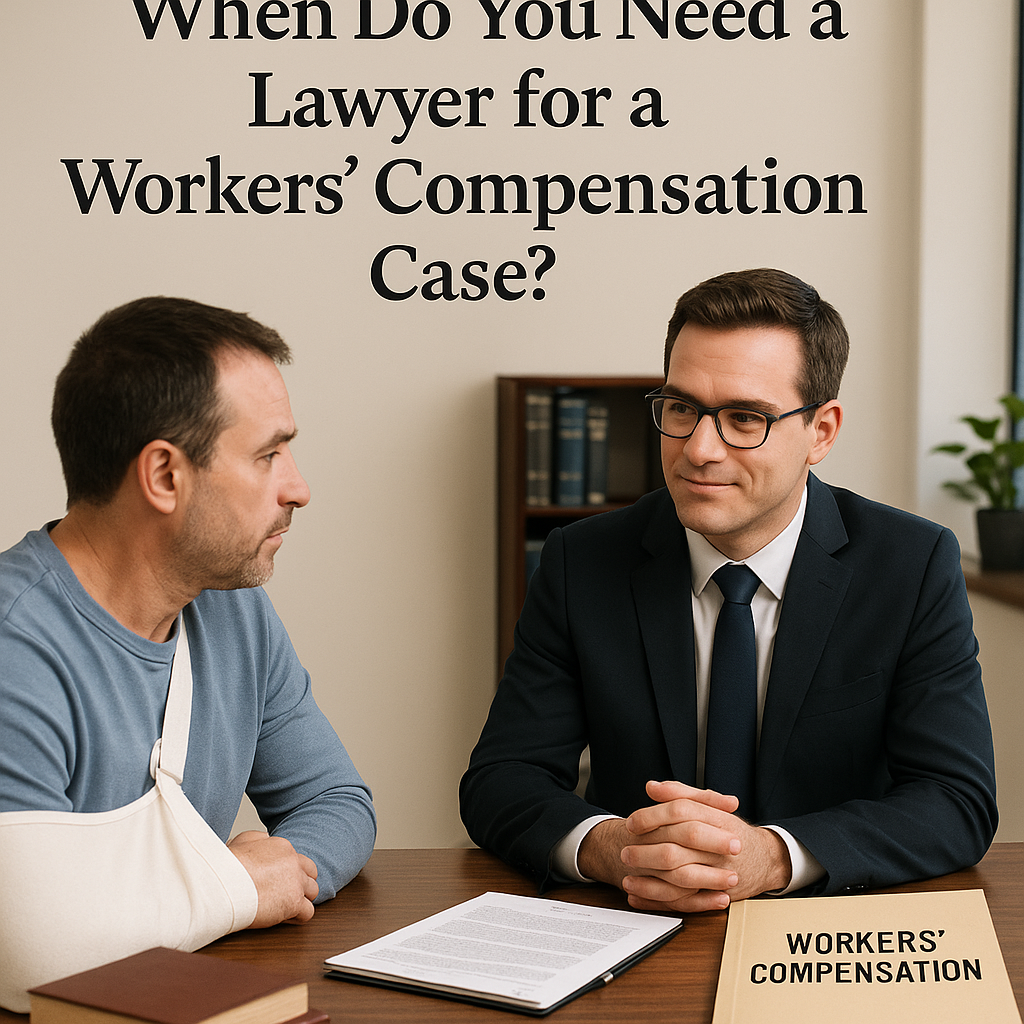
Workers’ compensation exists to help employees who are injured on the job receive the medical care and wage replacement they need. In theory, this system is meant to be straightforward. However, in practice, many cases become complex, delayed, or even denied, making legal support not only beneficial—but sometimes necessary.
If you’re wondering whether your situation requires legal representation, this guide offers a clear breakdown of when to involve a workers’ compensation attorney, both from an employee and employer standpoint.
Workers’ compensation is an insurance system that provides wage replacement and medical benefits to employees injured during the course of employment. In exchange, employees typically forfeit the right to sue their employer for negligence.
Each state has its own laws and regulations, but most follow a similar structure. When a claim runs smoothly, a lawyer may not be needed. However, if issues arise, understanding when legal support is appropriate becomes critical for protecting your rights and mitigating risk.
One of the most frequent reasons people contact an attorney is a denied claim. Insurers may argue that:
The injury didn’t occur at work
The condition was pre-existing
The employee missed a deadline
Medical documentation is incomplete or inconsistent
In these cases, legal guidance is essential to appeal the decision and present a compelling argument with supporting evidence.
Insurance companies often attempt to settle claims quickly and for less than what the case may be worth. If you receive a settlement that doesn’t cover:
All medical expenses
Future treatments or rehabilitation
Lost wages and benefits
Permanent disability ratings
An attorney can assess the offer and negotiate on your behalf for fair compensation.
When an injury results in long-term or permanent impairment, whether partial or total, calculating the full value of future losses becomes complex. Insurers may dispute the disability rating or delay benefits.
An experienced lawyer can:
Coordinate with independent medical evaluators
Accurately estimate future wage loss
Represent you at hearings if disputes arise
If you had a prior injury or condition that is aggravated by your current job, insurance providers may use this as a basis to deny or reduce your claim. A lawyer can help demonstrate the relationship between your work and the worsening of the condition.
Retaliation can include being demoted, fired, or harassed after filing a workers’ comp claim. This not only affects your income but may also indicate a violation of employment law. Legal representation ensures that your rights are protected and that any additional legal action is taken when appropriate.
In some cases, particularly with small businesses or contractors, employers may not have active coverage—even if required by law. An attorney can help you navigate alternative options such as:
Filing a claim with a state fund
Pursuing a personal injury lawsuit
Employers also face risks and complexities in managing workers’ compensation claims. Seeking legal advice can help reduce liability and avoid prolonged disputes.
Key scenarios include:
The injury involves third-party liability
Fraud is suspected
The employee hires an attorney
You're unsure about compliance obligations
The claim involves mental health or stress-related conditions
Having legal guidance early in the process can lead to better case management, lower costs, and reduced exposure to litigation.
Hiring a lawyer isn’t just about appearing in court. Here’s how they actively manage your claim:
Evaluate the merits of your case
Collect medical records and expert testimony
Represent you in hearings and mediations
Handle all communication with the insurance company
File appeals and ensure deadlines are met
For employers, legal counsel also provides support with internal investigations, documentation, and compliance audits.
If you’re considering hiring a workers’ comp lawyer, look for the following:
Experience with local workers’ comp laws
Clear fee structure – most work on a contingency basis
Strong communication skills
Proven track record of settlements and hearings
At Attorney Axis, we connect individuals and businesses with attorneys who focus specifically on workplace injury claims. Whether you're navigating a denied claim or need guidance on insurance obligations, we can help you find the right legal partner for your situation.
Not every workers’ compensation claim requires a lawyer—but when disputes, delays, or denials occur, professional legal support can make a measurable difference in the outcome. For both employees and employers, understanding when to seek help isn’t just a smart move—it’s often necessary for protecting rights, finances, and long-term health.
If you’re unsure where your case stands, reach out to a qualified workers’ compensation attorney through Attorney Axis. The first consultation is often free—and it can give you clarity about your next steps.
Need Help Navigating Your Workers' Comp Case? Don't wait until it's too late. Find experienced legal professionals in your area through our trusted legal firm directory and get the support you need today.
Copyright @2024 smarteyeapps.com. All rights reserved